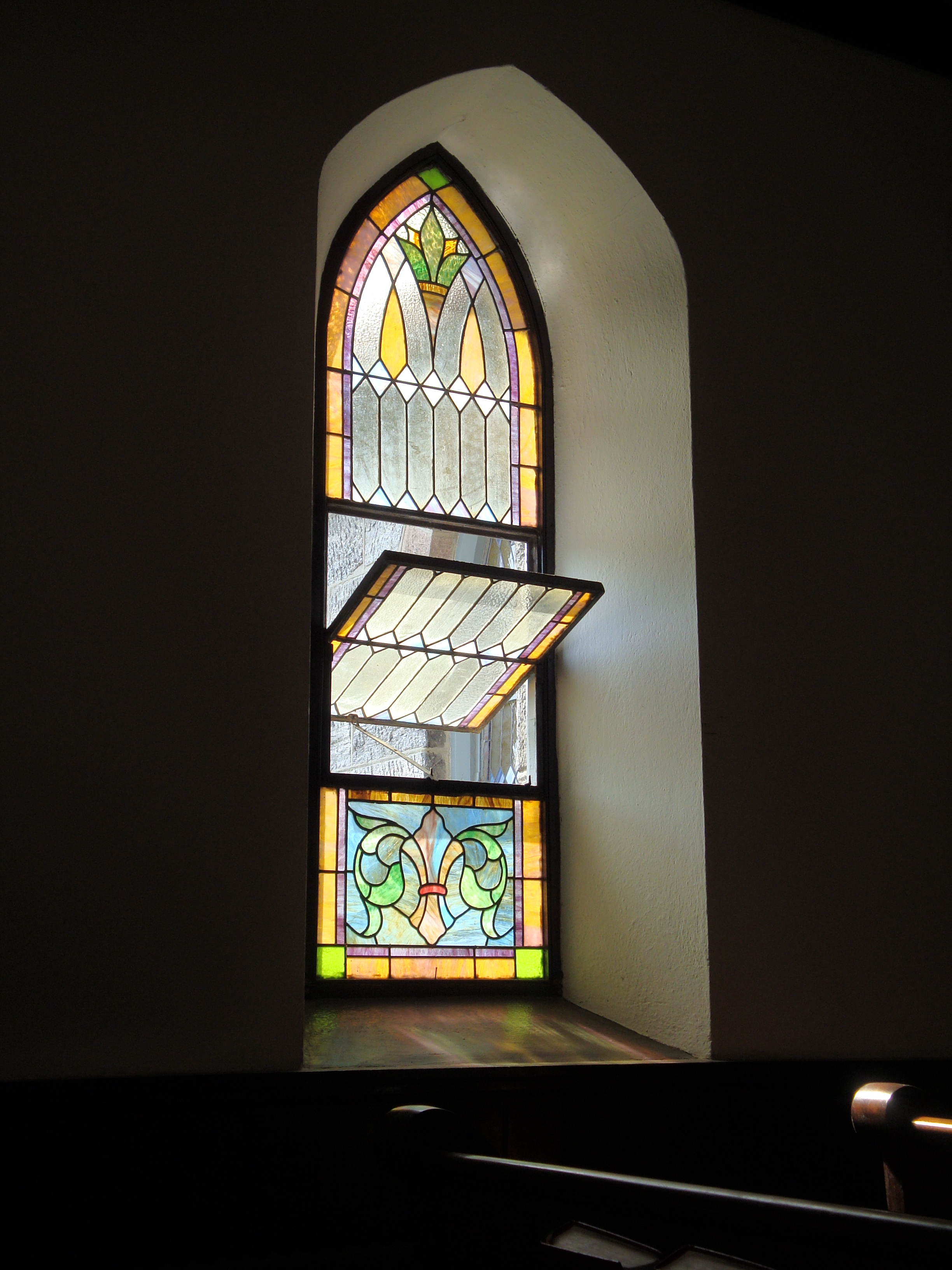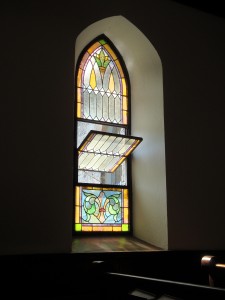The Church in Transition – by Megan Hunt Fryling
Times of transition – two parts frightening, one part exciting
As a seminary student preparing for ordained ministry, I am keenly aware of the transition that is occurring in mainline Protestant churches, particularly the Evangelical Lutheran Church, the denomination of which I am a member. Times of transition often feel two parts frightening and one part exciting, especially when we can’t exactly see where this transition is taking us.
The difficulties of a time of transition are felt acutely in the urban congregations that I have been involved with in the last few years. I’m currently working as a vicar (full-time seminary student intern) splitting my time between two different Philadelphia churches. While there are vast differences between these two congregations, the fact remains that both are struggling in this time of transition. Membership is down, giving is down, participation has decreased. Yet at the same time, costs are rising and the need for Jesus’ love in this world certainly isn’t decreasing.
Churches that were once packed on a Sunday morning at multiple services 50 years ago now have a single worship service with maybe 40 in attendance. Churches that were once major social and religious institutions of their neighborhoods are now struggling to stay afloat. Things have changed- we have new liturgies, new technology, new music, new leadership. Yet sometimes it’s too easy to want to remain entrenched in the past. It’s too easy to say that what we did 50 years ago worked so we should stick with it. The world has changed around us and while I don’t think it necessarily means that we should look to simply fit in as much as possible, I think that it is crucial that the church finds a way to connect with the people.
What am I getting myself into?
As a seminary student, I have to ask myself what I’m getting into. My classmates and colleagues around me are all talking about changes that are happening in the church and also wondering what changes should be happening that aren’t. Future pastors are being warned of a need to be “bi-vocational” or “tent-makers” which means that church leadership should have dual roles- both as a preacher and leader of a congregation as well as something else, somewhere to get a paycheck and insurance. Change in the role of the pastor certainly has an impact on congregations and on the wider church. While this balance is daunting to many of us in seminary, we know that as the church changes, the role of the minister has to change as well. Working outside of the congregation offers a pastor even more opportunities to reach out to the community by being a presence in a different way.
This may be something that feels strange to ELCA seminary students, yet this idea isn’t exactly new. We know that Paul was a tentmaker and that while he was traveling and spreading the gospel, he worked to support himself and his travels as he went from place to place telling the story of Jesus.
Equipping the saints for ministries of transformation
This year, I am working in a church that is taking part in a program called Transformational Ministry. It’s a process designed by the Evangelical Outreach Team of the Southeast Pennsylvania Synod of the ELCA. It helps struggling congregations to look at the needs of the community, what God’s doing, what God is calling the congregation to do. Part of this process requires us to study the book of Acts and it has required me to preach several sermons based on Acts as well. One of the interesting discoveries that we’ve made in this process is that while there are things that definitely separate us from the time and the people of the early church, many of the troubles that we face are the same.
The church in Acts was a church is transition. There are lessons that we can take from the apostles that are certainly still applicable today despite the many years between us. The apostles were so changed and inspired by Jesus’ death and resurrection and God’s amazing love for us that they went out into the world and traveled to share this wonderful news. The church sometimes forgets about this and instead chooses to keep the Gospel inside of closed doors and behind stained glass. Just because we’re in a period of transition doesn’t mean that the Holy Spirit isn’t working all around us and through us. The apostles were led by the Spirit to do great things and the Spirit is with the church today, even in our transition. They didn’t just sit around remembering the good old days. They actively sought to meet the needs of the communities around them, they spent time teaching and reaching out to everyone they came across. They didn’t do this because their salvation depended upon what they did, but rather because this gift of life was so great, it wasn’t something that they could keep to themselves. The church today needs to keep that in mind. There are so many ways in which we can address the needs of the community around us because that is what God is calling us to do. We can address those needs and through that, share the love and life that we have been given.
A time of transition can be scary because it leaves us in this balance between one thing and the next, this uneven ground. However, when we remind ourselves that God is present with us in this transition, it is something entirely different. The Holy Spirit works with us as we strive to share the good news of Christ with those around us, even when we’re feeling uncertain.
Maybe we don’t know where we’re going, but when we remember the transforming power of Jesus Christ, we know that He can bring a period of transition into a time of great and wonderful transformation.
Southeast Pennsylvania Synod Transformational Ministry: http://www.ministrylink.org/for-churches/transformational-ministry/



This article provides a very realistic look at what leaders of churches in transition are faced with. Nice job!
It was good to read your comment, Megan. I can agree that the church today is faced with challenges– economic and cultural and political. I see the relevance of Acts to our situation. I wonder about the thought that pastors can become tent-makers. My impression is that the work of a pastor is all-encompassing. It takes precedence of family and personal growth and recreation. Can you young people sign on for that as well as holding another position? My impression is that you need more personal time rather than less. God with you– Marilyn Zorn
Pingback: The Church in Transition – by Megan Hunt Fryling | Ecclesio.com – church tech news